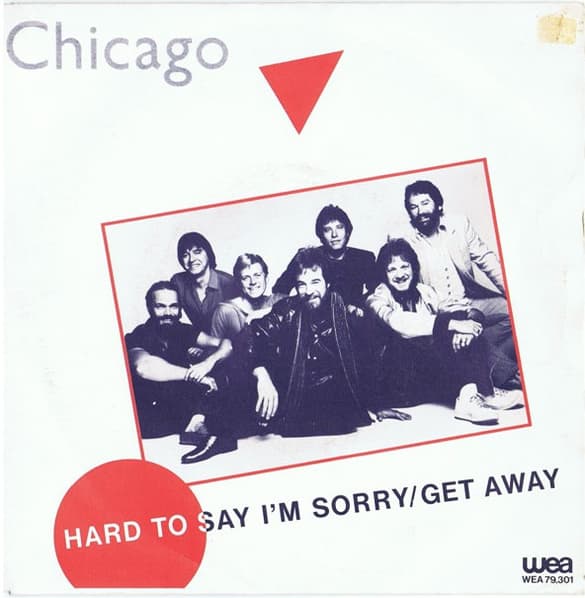
Rediscovering Chicago’s Timeless Classic: “Hard to Say I’m Sorry”
In 1982, Chicago made a triumphant return to the music charts with the release of “Hard to Say I’m Sorry,” a power ballad that marked a significant shift in the band’s musical direction. Written by Peter Cetera and produced by David Foster, this song became an instant hit, eventually climbing to the coveted No. 1 spot on the Billboard Hot 100. It wasn’t just a fleeting success; “Hard to Say I’m Sorry” stayed in the top 5 of the Billboard Hot 100 for twelve weeks, reaffirming Chicago’s place in the pantheon of rock legends.
For those who followed Chicago through the ’70s, the band’s sound was synonymous with horn-driven, jazz-rock fusion. But by the early ’80s, the musical landscape was changing, and so was Chicago. “Hard to Say I’m Sorry” was part of this evolution, offering a more polished, synthesizer-heavy production that aligned with the era’s burgeoning power ballad trend. While some longtime fans might have missed the brass that defined the group’s earlier work, the song’s success proved that Chicago could adapt and thrive in a new musical era.
Peter Cetera, who sang lead vocals on the track, delivered a performance that was both heartfelt and powerful, capturing the emotional core of the song’s lyrics. The song deals with themes of regret and the difficulty of apologizing—universal emotions that resonated with a wide audience. Cetera’s poignant delivery, combined with Foster’s lush production, created a sound that was as grand as it was intimate.
Adding to the song’s allure was the subtle inclusion of a secondary section titled “Get Away,” which reintroduced the horns that fans of Chicago had come to love. This clever melding of the old and new helped bridge the gap between the band’s past and its future, making “Hard to Say I’m Sorry” not just a hit, but a significant moment in Chicago’s storied career.
The song’s impact wasn’t limited to the charts. It earned Chicago a Grammy nomination for Best Pop Performance by a Duo or Group with Vocal and was certified gold by the Recording Industry Association of America (RIAA). Moreover, Peter Cetera received recognition from the American Society of Composers, Authors, and Publishers (ASCAP) with a Pop Music Award for the song, cementing its place as one of the most performed songs of that year.
Beyond its success on the charts and awards circuits, “Hard to Say I’m Sorry” also found a place in pop culture. It was featured as the ending theme for the 1982 film Summer Lovers, adding a cinematic touch to the song’s legacy.
In retrospect, “Hard to Say I’m Sorry” is more than just a power ballad from the ’80s. It’s a testament to Chicago’s ability to reinvent themselves, to stay relevant, and to connect with audiences across different generations. For those who lived through its release, the song likely brings back memories of a time when music was undergoing rapid transformation. For new listeners, it offers a glimpse into the era and a chance to appreciate the timeless quality of Chicago‘s music.